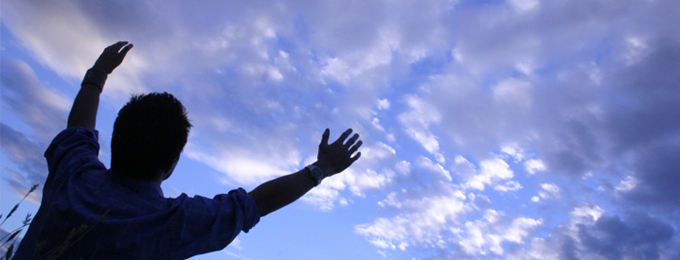
from Peter Berger:
___
There is ample Biblical warrant for noisy worship. Perhaps King David was the prototypical Pentecostal when he sang and danced before the Ark of the Lord as it was brought to Jerusalem, along with his men, “making merry… with songs and lyres and harps and tambourines and castanets and cymbals… and with the sound of the horn” (2 Samuel 6). Perhaps Michal, the daughter of Saul, who rebuked David for this unseemly behavior, was the prototypical guardian of properly polite etiquette. The mention of “joyful noise” is repeated in several Psalms, for example in Psalm 100: "Make a joyful noise to the Lord, all the lands! Serve the Lord with gladness! Come into his presence with singing". One version of this call to merry worship, in the wonderful cadences of Elizabethan English, has a favored place in the order of worship of the Anglican Book of Common Prayer. Members of more sedate Christian communions, such as Anglicans or Lutherans (let alone Presbyterians), are inclined to think that Pentecostals, their arms raised and their vocal chords in full throttle, are following the Davidic example too literally. Which reminds me of the only Pentecostal joke I know (perhaps the only one there is): What do you say in a meeting of Pentecostals if you want to know how many of them want coffee during the break?-- "Those who want coffee during the break, please lower your hands".
Noisy worship is not limited to Pentecostals. Revival services in American Protestantism have been quite noisy (even in the absence of "speaking in tongues"), and have been the soil from which sprang the powerful tradition of Gospel music. The development of African-American Protestantism cannot be understood apart from this tradition, brought to its fullness in the full-throated singing of black choirs. When it comes to liturgical paroxysms, no other Protestants can best the Shakers, who came to America from England in the eighteenth century. The name derives from their practice of sacred dancing, with wild physical gyrations, men and women moving in separate circles. One of their favorite songs went "Shake, shake Daniel-- shake the devil out of me". The Shakers were an offshoot of Quakerism (one of their early nicknames was "Shaky Quakers", to distinguish them from less shaky ones). Perhaps the Shakers were reacting against the distinctive Quaker practice of "waiting worship"-- everybody sits waiting in silence (if "shaking" at all, inwardly rather than bodily), until someone in the congregation feels "called" to speak. This (I have witnessed it) can be a dreary business, and after a long spell of it one may well be “called” to get up and shake out the devil with Daniel!
No comments:
Post a Comment